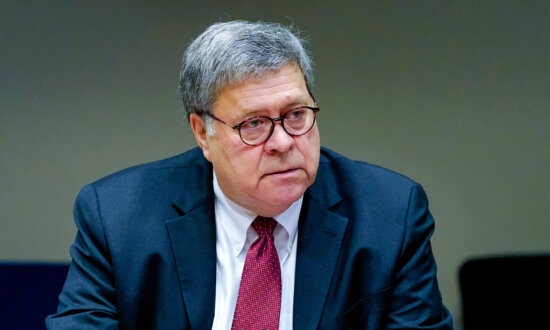WASHINGTON, D.C. – MAY 18: Special Representative on Afghanistan Reconciliation Zalmay Khalilzad testifies during a hearing before the House Committee on Foreign Affairs at Rayburn House Office Building May 18, 2021 on Capitol Hill in Washington, D.C. (Photo by Alex Wong/Getty Images)
OAN Newsroom
UPDATED 9:15 AM PT – Monday, October 25, 2021
America’s longstanding envoy for Afghanistan, Zalmay Khalilzad, said the U.S. pulled out of Afghanistan long before it could reach its goal to turn the country into a Democratic state.
On Sunday, Dr. Khalilzad defended America’s mission in Afghanistan, saying the Biden administration and Afghan government could have done more to coordinate a more effective withdrawal. Khalilzad claimed mis-messaging to Afghans attempting to flee the country and low morale in the Afghan military largely contributed to the botched withdrawal.
“The cause of which was both fear and opportunity. Fear because for a long time, everybody was saying, even some officials, when the Taliban comes into Kabul there will be a terrible war….street to street, fighting, destruction of the city. So people were afraid. That was one. Two, the impression was created that anyone who could make it to the airport, whether you have document or not, you will be evacuated to the United States and to Europe. That combination led to this flood of people to come to the airport and cause the terrible scenes,” said Khalilzad in an interview.
The veteran diplomat served in several high positions at the State Department, including ambassadorships to Afghanistan, Iraq and the UN. In 2018, former U.S. Secretary of State Mike Pompeo tapped him to be the special representative for Afghanistan reconciliation, tasking him with resolving the 20-year war in the region.
2/5 U.S. forces are out, and the war is over for the United States, but this is not the final chapter. The Afghan people face great challenges ahead, including on the economy and security.
— U.S. Special Representative Zalmay Khalilzad (@US4AfghanPeace) October 19, 2021
Khalilzad is known as one of the key architects of President Trump’s 2020 peace agreement with the Taliban, which he says opened the door for a peaceful settlement. The deal required four steps, including the Taliban expelling other terrorist groups from recruiting and fighting in the country, and establishing a power sharing and ceasefire agreement with the Afghan government.
Additionally, the U.S. would phase out their military presence in the country over 14 months, pending the Taliban’s commitment to keeping their end of the bargain.
Khalilzad lamented critics often neglect that the Trump-era deal allowed the U.S. to come to the defense of Afghan forces, but prohibited the Taliban from attacking U.S. or Afghan troops. He added critics lambasting his efforts never gave a good reason to keep the war going.
“Why was that the case after 20 years? That with so much investment, so much loss of life, that we were losing ground to the Taliban and the alternative was either a negotiated settlement or more of the same,” Khalilzad stated. “And people way above my pay grade decided more of the same is not acceptable anymore.”
However, Khalilzad resigned from his post last week, citing the debate over the next phase of U.S. policies toward Afghanistan were not based in reality. He stressed the Biden administration had a lot of options to choose from to administer an orderly withdrawal and advised officials to learn from their mistakes.
Khalilzad underscored the growing problems in the country, adding there’s still a lot of work to be done.
“It can still be a lot worse, or it can get better. But the choice is now mostly theirs, Afghans. Rumi, the great Afghan born in Balkh, said, ‘You can walk with people, you can not walk for them.’ Now, it’s time for the Afghans to take ownership with non-military assistance, unless we are threatened, then our military should be in play,” he said. “But, we should not abandon Afghanistan, turn our back on it…use our influence as a country with enormous capability and influence.”
Meanwhile, Ambassador Khalilzad warned the U.S. government doesn’t know how many Americans and allies have been left behind amid the botched withdrawal, claiming there could be hundreds still stuck in the country. The U.S. State Department said they’ve been in contact with nearly 370 stranded Americans and said only about 180 have expressed interest in returning to the U.S.
In addition, several federal agencies have launched internal reviews of their role in the withdrawal to get a better sense of what went wrong.












